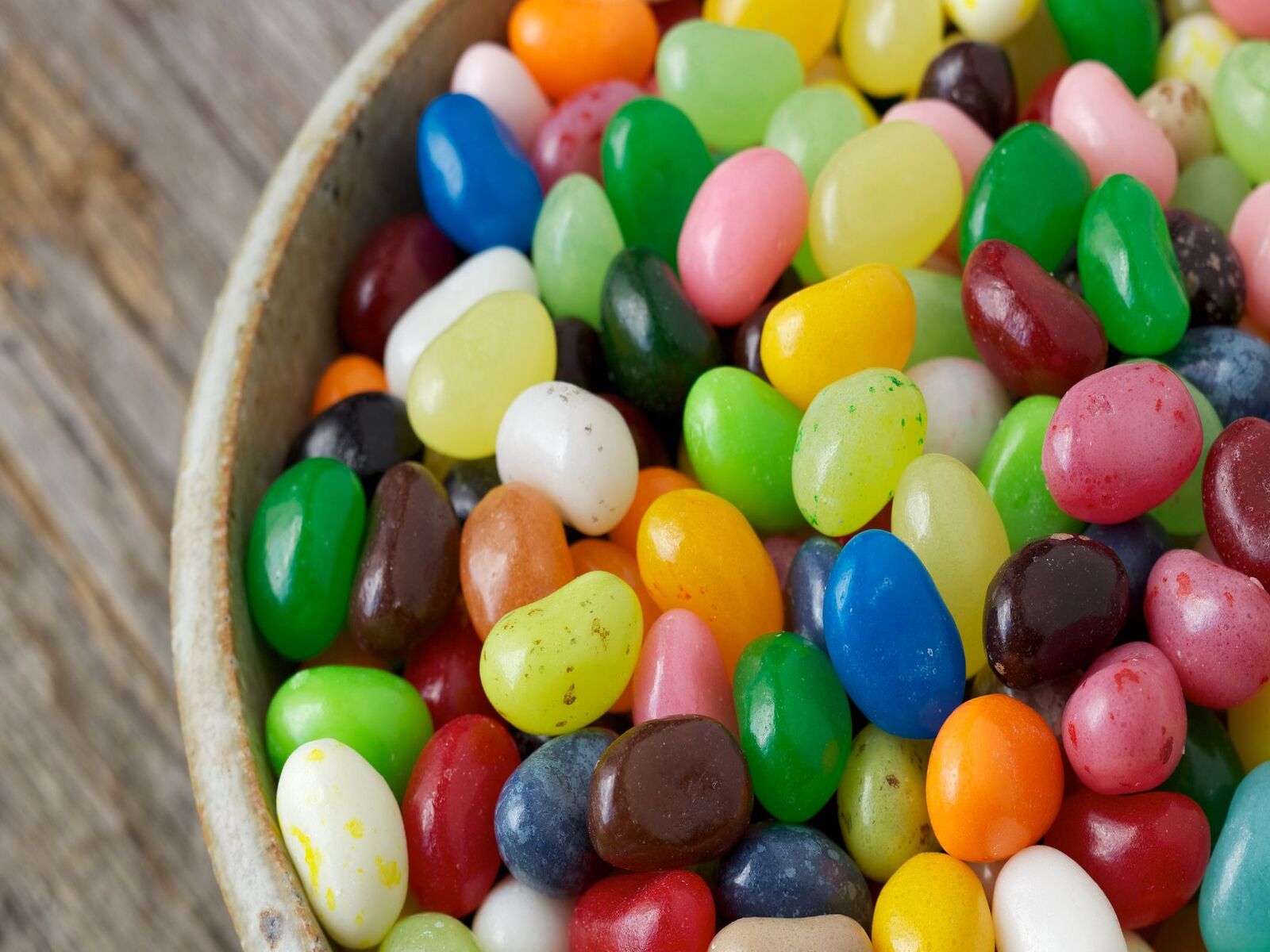
Jelly beans are a popular sweet treat enjoyed by people of all ages. These colorful, small confections are not only delicious but also have an interesting nutritional profile. In this article, we will explore 19 fascinating jelly bean nutrition facts that you may not be aware of. From calories and carbohydrates to vitamins and minerals, jelly beans have more to offer than meets the eye. Whether you are a jelly bean aficionado or simply curious about their nutritional value, this article will provide you with an in-depth understanding of what makes these tiny candies so unique. So, grab a handful of jelly beans and join us as we delve into the surprising world of jelly bean nutrition.
Key Takeaways:
- Jelly beans are a fun and colorful candy enjoyed during holidays, but should be eaten in moderation due to their high sugar content.
- Jelly beans come in a variety of flavors, are low in fat, and can be used for decorating, snacking, and even educational purposes.
Jelly beans are a popular candy during holidays.
Whether it’s Easter, Halloween, or Christmas, jelly beans are a festive treat enjoyed by many.
Jelly beans come in a variety of flavors.
From fruity flavors like cherry, strawberry, and blueberry, to sweet and tangy options like sour apple and lemon, there’s a flavor for everyone to enjoy.
Jelly beans are low in fat.
With less than 1 gram of fat per serving, jelly beans can be a guilt-free indulgence.
Jelly beans are high in sugar.
It’s no surprise that jelly beans are sweet, as they contain a high amount of sugar. Enjoy them in moderation!
Jelly beans are gluten-free.
For those with gluten sensitivities or dietary restrictions, jelly beans make a safe and tasty choice.
Jelly beans are a good source of quick energy.
The sugar content in jelly beans provides a quick energy boost, making them a popular choice for athletes and those in need of a quick pick-me-up.
Jelly beans are a fun addition to desserts.
Add a pop of color and sweetness to ice cream sundaes, cupcakes, or even homemade trail mix with jelly beans.
Jelly beans are not suitable for individuals with diabetes.
Due to their high sugar content, jelly beans are not recommended for individuals with diabetes or those trying to manage their blood sugar levels.
Jelly beans should be enjoyed in moderation.
While they may be tempting to eat in large quantities, it’s important to remember that moderation is key when indulging in jelly beans.
Jelly beans can be used for decoration.
Whether it’s filling up a candy jar or decorating a cake, jelly beans can add a festive touch to any occasion.
Jelly beans have a long shelf life.
Due to their sugar content, jelly beans have a long shelf life, making them a convenient treat to have on hand.
Jelly beans are a popular choice for party favors.
From weddings to birthday parties, jelly beans are a sweet and colorful option to thank guests for attending.
Jelly beans are suitable for vegetarian diets.
Most jelly beans are made without gelatin, which makes them a suitable choice for individuals following vegetarian diets.
Jelly beans can be enjoyed by people of all ages.
From children to adults, jelly beans bring joy to people of all ages with their vibrant colors and delicious flavors.
Jelly beans can be used for educational purposes.
Teach counting, sorting, and even basic math skills to kids using jelly beans as a fun and interactive learning tool.
Jelly beans contain trace amounts of vitamins and minerals.
While not a significant source of nutrients, jelly beans do contain small amounts of vitamins and minerals.
Jelly beans can be enjoyed year-round, not just during holidays.
Why limit the enjoyment of jelly beans to specific holidays? Enjoy them any time of the year as a sweet treat.
Jelly beans are a popular movie theater snack.
Grab a box of jelly beans to munch on while enjoying your favorite film at the theater.
Jelly beans are a versatile candy.
From snacking to baking, jelly beans can be used in various ways to enhance your culinary creations.
Conclusion
After exploring the various jelly bean nutrition facts, it is clear that while these colorful candies may be a beloved treat, they should be enjoyed in moderation. Jelly beans are high in sugar and low in essential nutrients, making them more of a fun indulgence than a health-conscious snack. However, if you can’t resist the temptation, opt for jelly beans made with natural flavors and colors. Additionally, consider incorporating healthier alternatives like fresh fruits or dried fruits into your snacking routine to satisfy your sweet tooth while still nourishing your body. Remember, balance is key when it comes to enjoying indulgent treats like jelly beans.
FAQs
1. Are jelly beans a healthy snack?
While jelly beans can be a tasty treat, they are not considered a healthy snack. They are loaded with sugar and offer minimal nutritional value.
2. How many calories are in a serving of jelly beans?
The number of calories in a serving of jelly beans can vary depending on the brand and flavor. On average, a serving of jelly beans (around 20 pieces) contains about 140-150 calories.
3. Can I include jelly beans in a balanced diet?
While it’s possible to include jelly beans in a balanced diet, it’s important to consume them in moderation. They should not be the main source of nutrition but rather enjoyed as an occasional treat.
4. Are there any healthier options than traditional jelly beans?
Yes! If you’re looking for a healthier alternative to jelly beans, consider opting for fruit-flavored snacks made from real fruit or dried fruits. These options offer natural sweetness and are often higher in fiber and essential nutrients.
5. Can I make my own healthier version of jelly beans?
Absolutely! There are numerous recipes available online for making homemade jelly beans using healthier ingredients like fruit juice and gelatin. This allows you to have more control over the ingredients and reduce the sugar content.
Was this page helpful?
Our commitment to delivering trustworthy and engaging content is at the heart of what we do. Each fact on our site is contributed by real users like you, bringing a wealth of diverse insights and information. To ensure the highest standards of accuracy and reliability, our dedicated editors meticulously review each submission. This process guarantees that the facts we share are not only fascinating but also credible. Trust in our commitment to quality and authenticity as you explore and learn with us.


